Jeff Garrison
Mayberry and Bluemont Churches
January 26, 2025
Psalm 19
We’re on a journey through life. Journeys are exciting and like most journeys, we should be amazed at the sights we see as we travel with Jesus. Ours is a sacred journey. Our ultimate goal of returning home to the Father, as the prodigal came back to his dad’s farm.[1]
Jesus prepares the way.[2] But there’s no need to rush down the road. Instead, we should saunter through God’s marvelous creation. As we’re on a spiritual journey, there may be things we can learn from other traditions. From Confucius philosophy out of China comes a list of practices for a spiritual journey. I recommend them to you:
- Practice the arts of attention and listening.
- Practice renewing yourself every day.
- Practice meandering to the center of every place.
- Practice the ritual of reading sacred texts (for us, that’s the Bible)
- Practice gratitude and praise singing (to this we might add Paul’s advice to “pray without ceasing”[3]).[4]
Before reading the Scripture:
This morning we’re looking at Psalm 19. As I have emphasized before, the Psalms served as Israel’s hymnal. This psalm, credited to David, had a liturgical function in worship. David draws from his experience at being outdoors where he’s amazed at the way God created order.
Our psalm can be divided into three parts. The first section serves as a hymn of praise to the God of creation. Theologians call this natural theology, God’s revelation through creation.[5] The second part praises God’s law. The law as with all Scripture, is a part of God’s revelation.[6] Having been brought to enlightenment through the awe of creation and the wisdom of the law, the psalm ends with a plea for God’s help so that the Psalmist might be cleansed and remain pure. This is a Psalm which guides us on our journey home.
Read Psalm 19:
As I read the opening of this Psalm, I mumble to myself, “Amen.” I, too, have seen God’s glory in the sky. The winter sky at night is amazing. Thursday night, I got home from an amateur radio meeting in Galax about 10 PM. A friend had met me at my house and rode with me. We spent about ten minutes talking outside by our cars, in the cold, while looking up at the sky.
I spotted Mars by the twins, in the constellation Gemini. Jupiter stood near the right horn of the bull, Taurus. Orion and his faithful dog had risen high in the sky as well as the dipper as it circles Polaris. But that’s only what the eye can see. Even as scientists bring us more understanding of the vastness of the universe, it’s not a reason for us to question our faith. Instead, there’s more to be in awe of God in the beauty and vastness of creation.
And yet, we need to remember that although we might witness the glory of the Lord in creation, it’s because God’s creation is good. David, the psalmist, doesn’t slip into pantheism, praising creation itself as god, nor does he go off into worshipping nature.[7] We do not worship creation, only the Creator is worthy of our praise. But because it is a good creation, we stand in awe of the God who made the heavens and the earth.
The opening six verses of this Psalm remind us of Psalm 8, which also praises the wonders of God as seen in creation. Scripture itself, in Genesis, begins with creation. Again, we don’t worship creation, only the Creator. But in creation, we come to understand an aspect of God’s majesty. Take the time to enjoy the night sky. Or watch in awe as a storm blows in, to appreciate distant mountain peak, or to watch the waves crash on a beach. These experiences should drive us to our knees in praise of the Creator.
The appreciation of the world in which we live is only the first part of this Psalm. The change comes in verse 7. Some scholars suggest the Psalm is really two separate Psalms put together for some reason but originally separate.[8] I don’t buy into that line of thinking. Instead, the God who created the cosmos, has not abandoned it, but continues to be involved with creation, through the giving of the law and later the sending of a son.[9]
The second section of Psalm 19 is similar (but with a lot less words) to Psalm 119. The 119th Psalm, as you may know, goes on and on and on in praise of God’s law. If you have time, I encourage you to read it. But be warned, it’s the longest Psalm in scripture and longer than some books within the Bible.
I believe the Psalmist intentionally links the parts of the Psalm to remind us of when we find ourselves in awe of God’s handwork, we should dive deeper into God’s heart. This is where the law comes into play. This section begins by calling the law perfect. We’re reminded the law’s purpose is to revive the soul. This may sound strange. We think of a particularly spectacular sunset as soul reviving, not laws. Laws sound, well, too legalistic. And we don’t want to be legalists.
You know, at one point in my life, I thought I wanted to be a lawyer, but a college course in jurisprudence cured me of that idea. So how can the law restore our souls?
As I have often said, God’s law shouldn’t be viewed as restrictive. Instead, it sets boundaries in which we live in a way we honor God and others while having great freedom. If we stay within the boundaries, we enjoy life. If we move outside the boundaries, just as we move beyond the firmaments of the heavens, we’re not going to sustain life for long.
Just as the Psalmist allowed the majesty of creation sweep over him as he watched the sun and stars make their way across the sky, he now looks inside of himself. He acknowledges how the law restores his soul, bring joy to his heart and light to his eyes.
The law is even more desired than wealth. It’s sweeter than honey. The sweetness should remind of a practice in ancient days when Jewish children started to to study the law. The rabbi dropped a bit of honey on their tongues so they might come to understand that like honey, the law is also sweet.
In verse 11, the Psalm takes another turn. It’s as if the Psalmist realizes the law brings consequences. He asks God to cleanse him. This is a prayer of confession and supplication. The Psalmist knows he needs forgiveness, which involves his confession. He also knows he can’t do everything by himself. In verse 12, he acknowledges the sins of which he’s unaware—and, as a warning, we all have such sins. He also knows others stand to lead him astray. To avoid the consequences of stepping out of the bound prescribed by the law, the Psalmist needs God’s help.
The Psalm closes with a verse I’ve often pray silently before stepping into the pulpit: “Let the words of my mouth and the meditation of my heart be acceptable to thee, O Lord.” Here, at the end of this poem, the wonderings of his imagination focus. Having seen God’s glory in the heavens and experienced it in the law, he realizes he need not try to please anyone but God. God is his rock, his foundation; God, is his redeemer, his Savior.
Psalm 19 is one of the more beloved Psalms, standing there with Psalm 23, 121, and 145. It’s a good Psalm to mediate upon and, if you’re into such, to memorize. We’re reminded of God’s amazing creation, of God’s care for us through the law, and of our need to seek refuge in God’s grace. This Psalm sets before us a way to appreciate God and to help steer our lives to align us to God’s purposes. It’s a Psalm which captures the Christian journey back home. Amen.
[1] Luke 15:11-24.
[2] John 14:1-7.
[3] 1 Thessalonians 5:17.
[4] From the Analects of Confucius as quoted by Phil Cousineau, The Art of Pilgrimage: The Seeker’s Guide to Making Travel Sacred (New York: MJF Books, 1998), 126.
[5] See Romans 1:20.
[6] Leonard Vander Zee, “Psalm 19 Commentary,” Center for Excellence in Preaching, https://cepreaching.org/commentary/2018-09-10/psalm-19-3/
[7] James L. May, Psalms: Interpretation: A Biblical Commentary for Teaching and Preaching (Louisville, KY: John Knox Press, 1994), 97.
[8] Artur Weiser, The Psalms: Old Testament Library (Philadelphia: Westminster Press, 1962), 197 approaches the Psalm as two separate Psalms. Claus Westermann, The Living Psalms (1984, Grand Rapids, MI: Eerdmans, 1989), 253, both approach Psalm 19 as verses 1-6 being the original. Westermann sees the rest as a later addition.
[9] Scott Hoezee, “Psalm 19 Commentary,” The Center for Excellence in Preaching, https://cepreaching.org/commentary/2025-01-20/psalm-19-11/

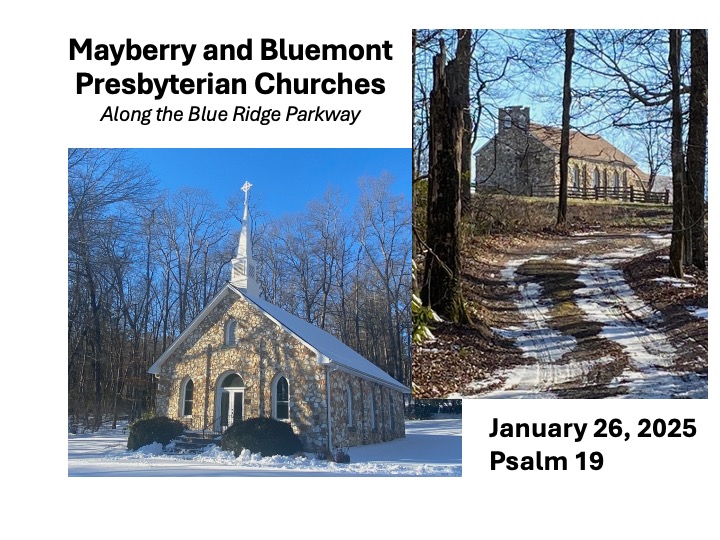
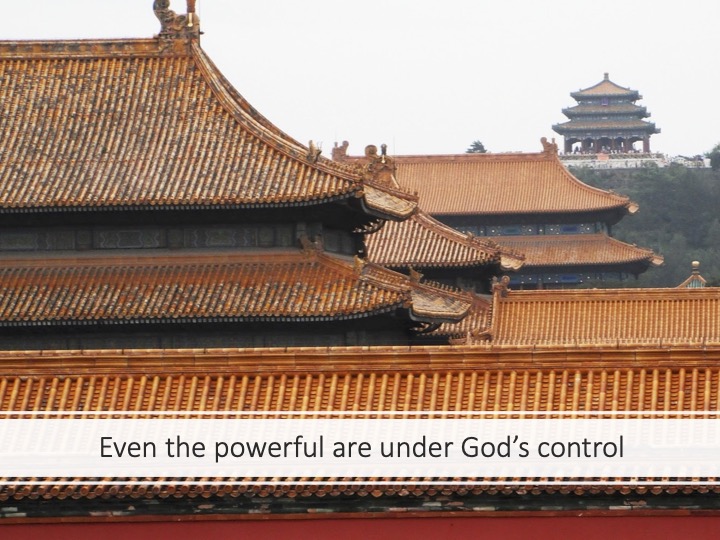

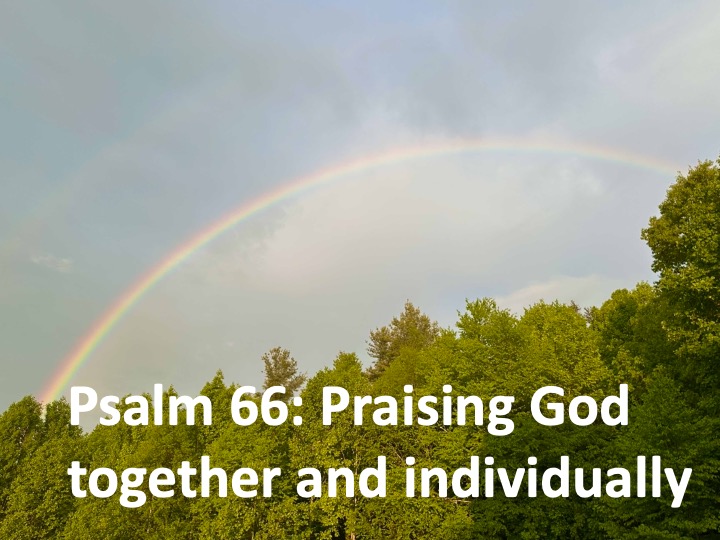
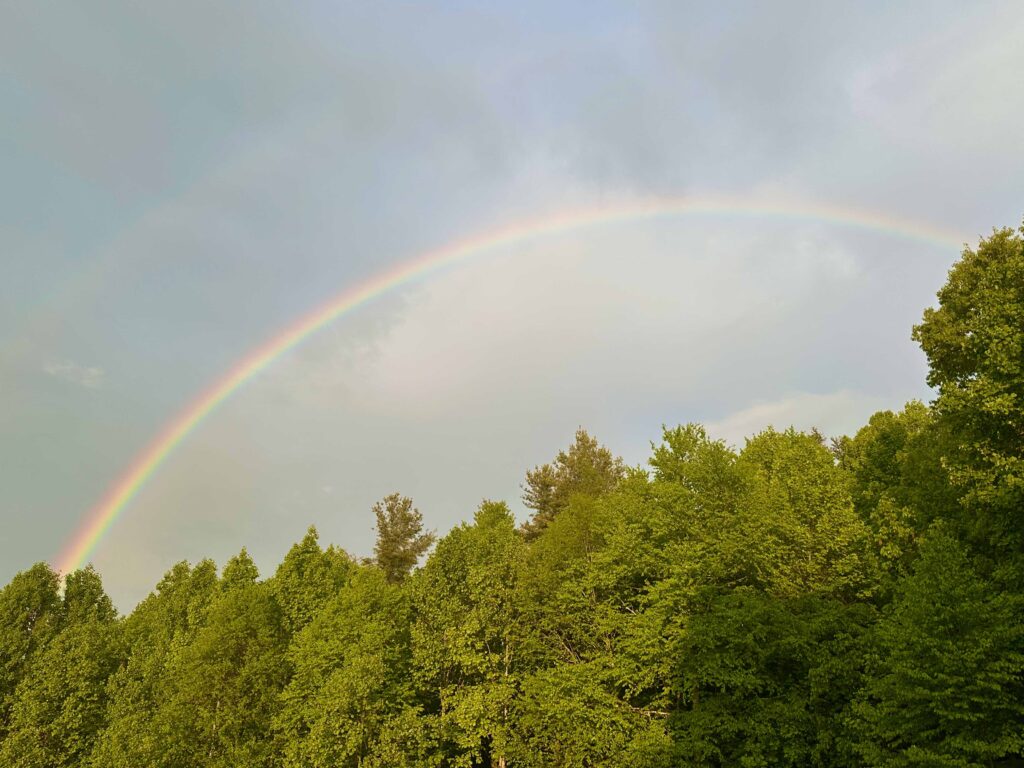
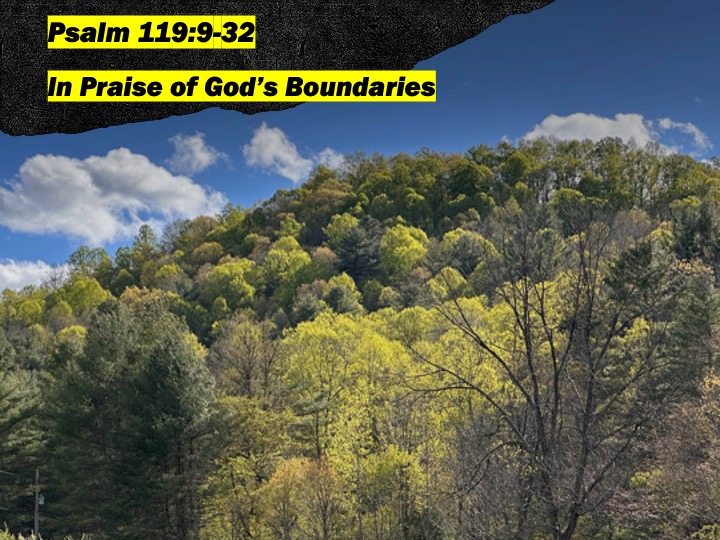
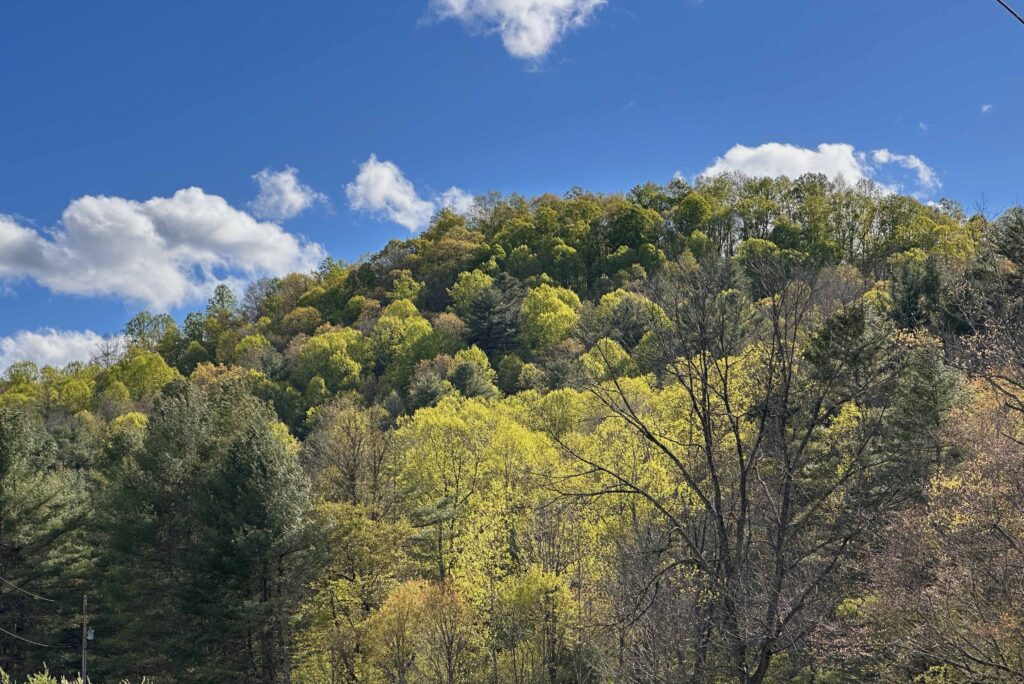
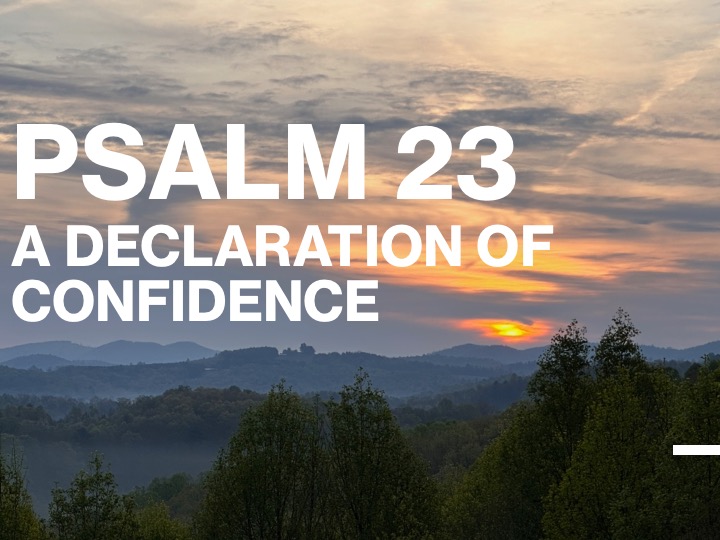
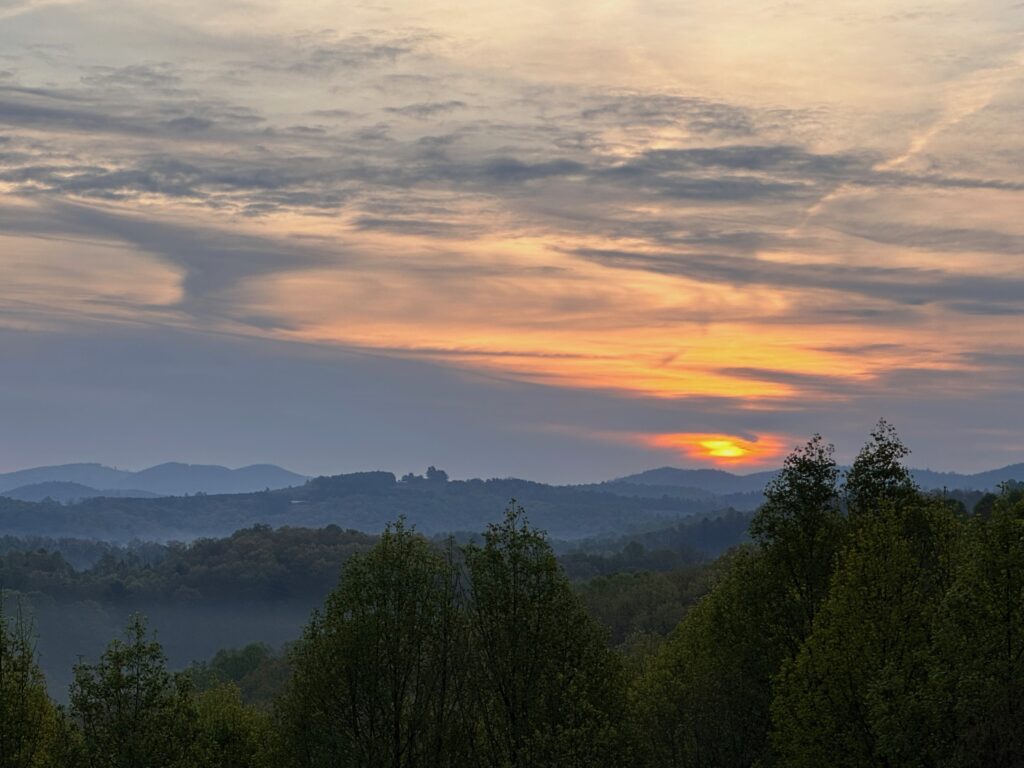
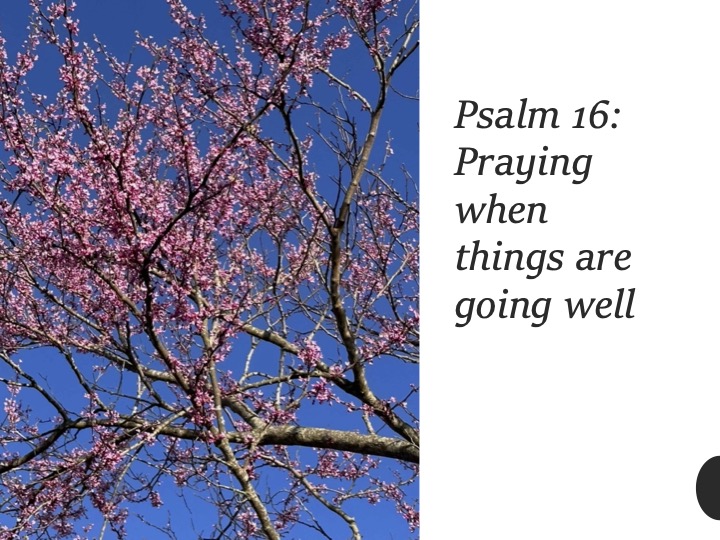
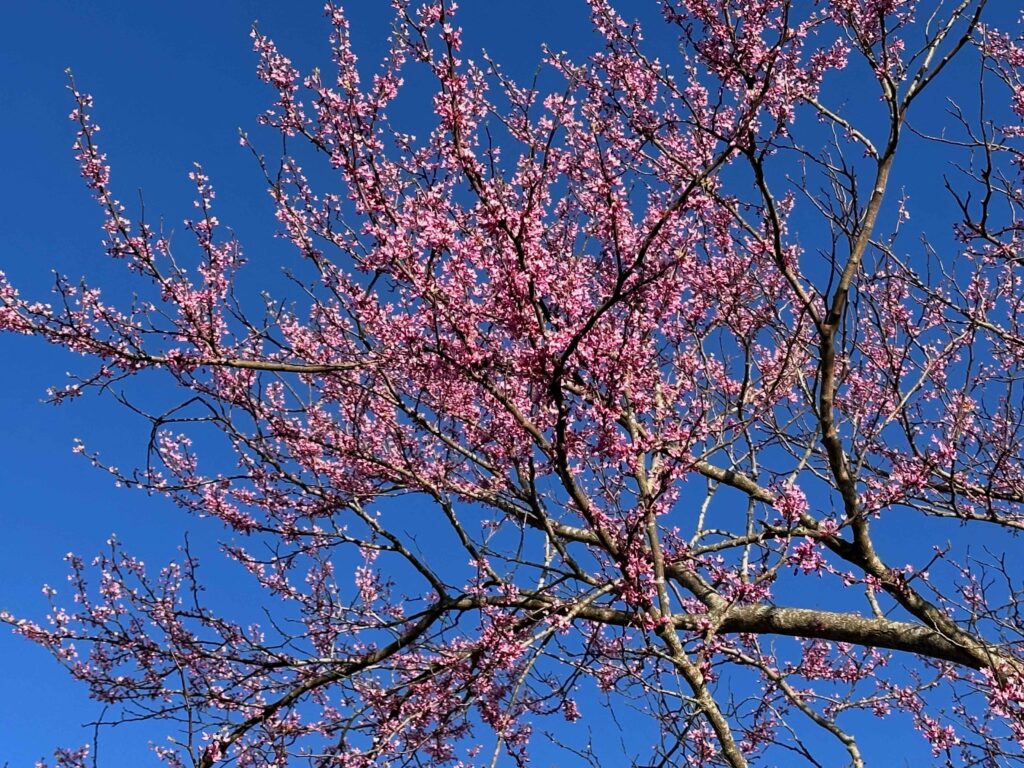
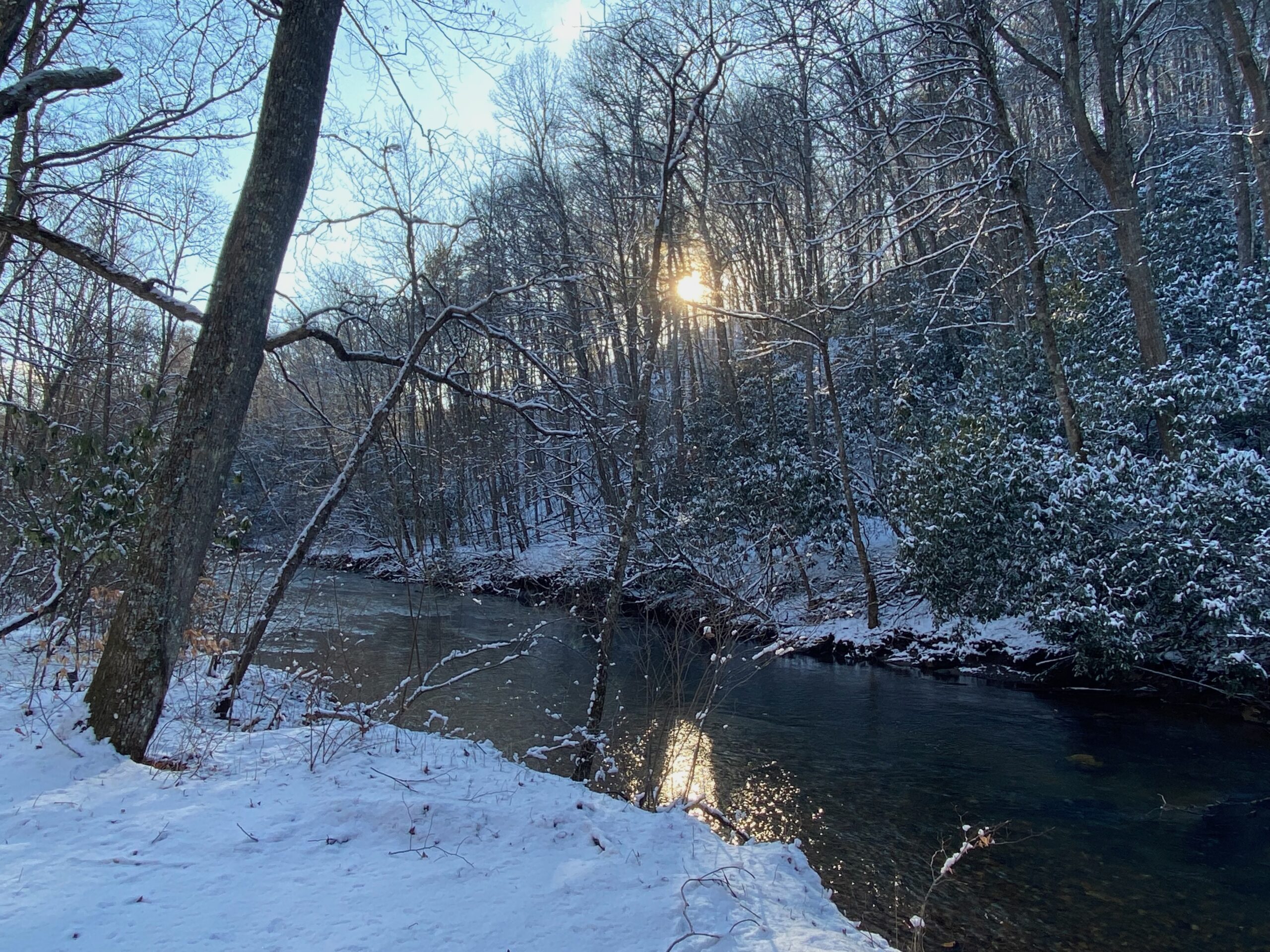
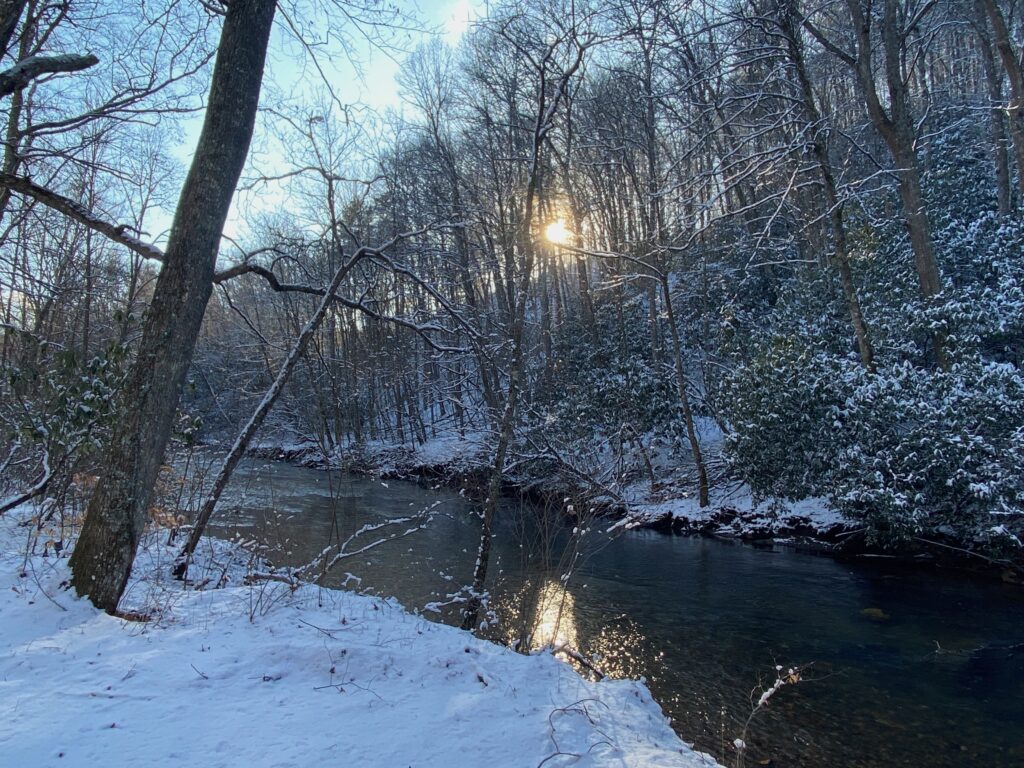

 Upcoming!
Upcoming! We’ve just finished focusing on Jesus’ humble birth with the celebration of Christmas. Born in Bethlehem, God came into this world in like all of us. This morning, let’s for a moment contrast the humility of Jesus’ birth with a vision of God from the 29th Psalm. This Psalm, which lifts up God’s glory, orients us to the proper way to approach God. In God’s presence, like the wise men and shepherds, we can only stand in awe.
We’ve just finished focusing on Jesus’ humble birth with the celebration of Christmas. Born in Bethlehem, God came into this world in like all of us. This morning, let’s for a moment contrast the humility of Jesus’ birth with a vision of God from the 29th Psalm. This Psalm, which lifts up God’s glory, orients us to the proper way to approach God. In God’s presence, like the wise men and shepherds, we can only stand in awe.
 There is nothing like an electrical storm to remind us just how our lives are fragile. I’ve been caught in many such storms: hiking in the forested woods of the Appalachians, backpacking above tree-line in western mountains, in a boat offshore of North Carolina, paddling a kayak in our sounds, and even once—as a kid—playing golf with my grandfather on Pinehurst #2.
There is nothing like an electrical storm to remind us just how our lives are fragile. I’ve been caught in many such storms: hiking in the forested woods of the Appalachians, backpacking above tree-line in western mountains, in a boat offshore of North Carolina, paddling a kayak in our sounds, and even once—as a kid—playing golf with my grandfather on Pinehurst #2. As the storm moves off eastward, each boom of thunder is a little less intense. It’s hard to tell when the rain stops as the leaves keep shedding their water a good thirty minutes after the storm has past, even after rays of sun break through the canopy, which provides another glimpse of awe. In a few minutes, the storm seems to be a distant dream. In camp that evening, you build a fire and attempt to dry out socks and boots as you discuss shared experiences. Everyone was scared, but are glad to have gone through it. Storms are awe-inspiring.
As the storm moves off eastward, each boom of thunder is a little less intense. It’s hard to tell when the rain stops as the leaves keep shedding their water a good thirty minutes after the storm has past, even after rays of sun break through the canopy, which provides another glimpse of awe. In a few minutes, the storm seems to be a distant dream. In camp that evening, you build a fire and attempt to dry out socks and boots as you discuss shared experiences. Everyone was scared, but are glad to have gone through it. Storms are awe-inspiring. I love this Psalm! We live in a narcissistic world, yet the Psalm reminds us of our limited abilities. In the face of such a storm, in the presence of our God, all stand in awe. The power of this Psalm drowns the choruses of “me, me, me” and “I, I, I” that dominate the sound waves of our lives. We can’t think too much of ourselves when we truly contemplate the power and the glory of our God. When we truly consider the omnipotence of God, a God shown in the 29th Psalm to have power over creation, we are left nearly speechless. The majesty of God drives us to our knees.
I love this Psalm! We live in a narcissistic world, yet the Psalm reminds us of our limited abilities. In the face of such a storm, in the presence of our God, all stand in awe. The power of this Psalm drowns the choruses of “me, me, me” and “I, I, I” that dominate the sound waves of our lives. We can’t think too much of ourselves when we truly contemplate the power and the glory of our God. When we truly consider the omnipotence of God, a God shown in the 29th Psalm to have power over creation, we are left nearly speechless. The majesty of God drives us to our knees. I may have told you before about the cocky scientist who thought it wouldn’t be too hard to create a human being. If God could do it, he could do it, or so he thought. So God issued a challenge. He accepted. On the day of the event, the scientist went down to a creek bank and dug out clay and rich dirt. He then began to mold it into a body. It was looking pretty good. But before he could try to blow life into his body, a lightning bolt shattered this creation and a voice from heaven boomed, “Hey you, Mr. Scientist, go get your own dirt.”
I may have told you before about the cocky scientist who thought it wouldn’t be too hard to create a human being. If God could do it, he could do it, or so he thought. So God issued a challenge. He accepted. On the day of the event, the scientist went down to a creek bank and dug out clay and rich dirt. He then began to mold it into a body. It was looking pretty good. But before he could try to blow life into his body, a lightning bolt shattered this creation and a voice from heaven boomed, “Hey you, Mr. Scientist, go get your own dirt.” You know, we are all on a journey in this world. We are here for only a short time. And while we are here, God has something for us to do. We refer to this as our calling and those of us in the Reformed Tradition understand this calling to be more than just what we do within the church. In fact, worship is more than just what we do here on Sunday morning. Our whole lives are to glorify God, so our vocation—whether in the church or in the secular world—is important to God and the furthering of his kingdom.
You know, we are all on a journey in this world. We are here for only a short time. And while we are here, God has something for us to do. We refer to this as our calling and those of us in the Reformed Tradition understand this calling to be more than just what we do within the church. In fact, worship is more than just what we do here on Sunday morning. Our whole lives are to glorify God, so our vocation—whether in the church or in the secular world—is important to God and the furthering of his kingdom. On Monday, in our Calvin January Series lecture, some of us were blessed to hear Dr. Jimmy Lin talk about the “good news” in the battle against cancer. Those who heard the lecture may have been shocked that before Lin talked about cancer, he discussed his relationship to God, referring to himself as a “scientific doxologist.” As you know, the doxology is a praise of God. Dr. Lin suggested that the most important thing for all of us to do is to praise God. In other words, we are all called to be a doxologists. Yet, we live out our lives in different ways. He is a scientist, so he calls himself a scientific doxologist. When we all think of the labels we place on ourselves for our journey through life, all of us should strive to include the title “doxologists” with our description. “I’m a business doxologist, an engineering doxologist, a banking doxologist, a lawyer doxologist, a retired doxologist, a preaching doxologist…” You get the idea, don’t you?
On Monday, in our Calvin January Series lecture, some of us were blessed to hear Dr. Jimmy Lin talk about the “good news” in the battle against cancer. Those who heard the lecture may have been shocked that before Lin talked about cancer, he discussed his relationship to God, referring to himself as a “scientific doxologist.” As you know, the doxology is a praise of God. Dr. Lin suggested that the most important thing for all of us to do is to praise God. In other words, we are all called to be a doxologists. Yet, we live out our lives in different ways. He is a scientist, so he calls himself a scientific doxologist. When we all think of the labels we place on ourselves for our journey through life, all of us should strive to include the title “doxologists” with our description. “I’m a business doxologist, an engineering doxologist, a banking doxologist, a lawyer doxologist, a retired doxologist, a preaching doxologist…” You get the idea, don’t you?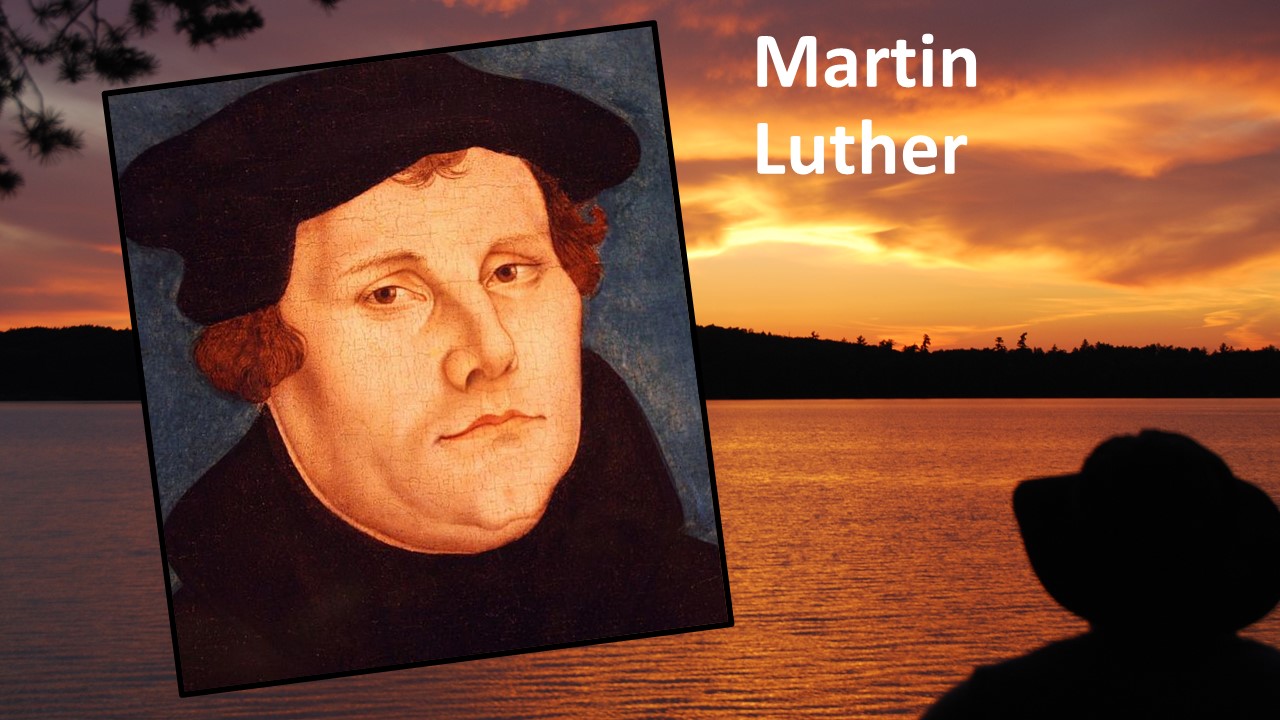 Interestingly, with all this discussion this morning about storms, Martin Luther, the great Reformer, religious vocation began with a thunderstorm. A nearby lightning strike threw him from his horse. Scared, he prayed and vowed that if saved, he would become a monk.
Interestingly, with all this discussion this morning about storms, Martin Luther, the great Reformer, religious vocation began with a thunderstorm. A nearby lightning strike threw him from his horse. Scared, he prayed and vowed that if saved, he would become a monk.
